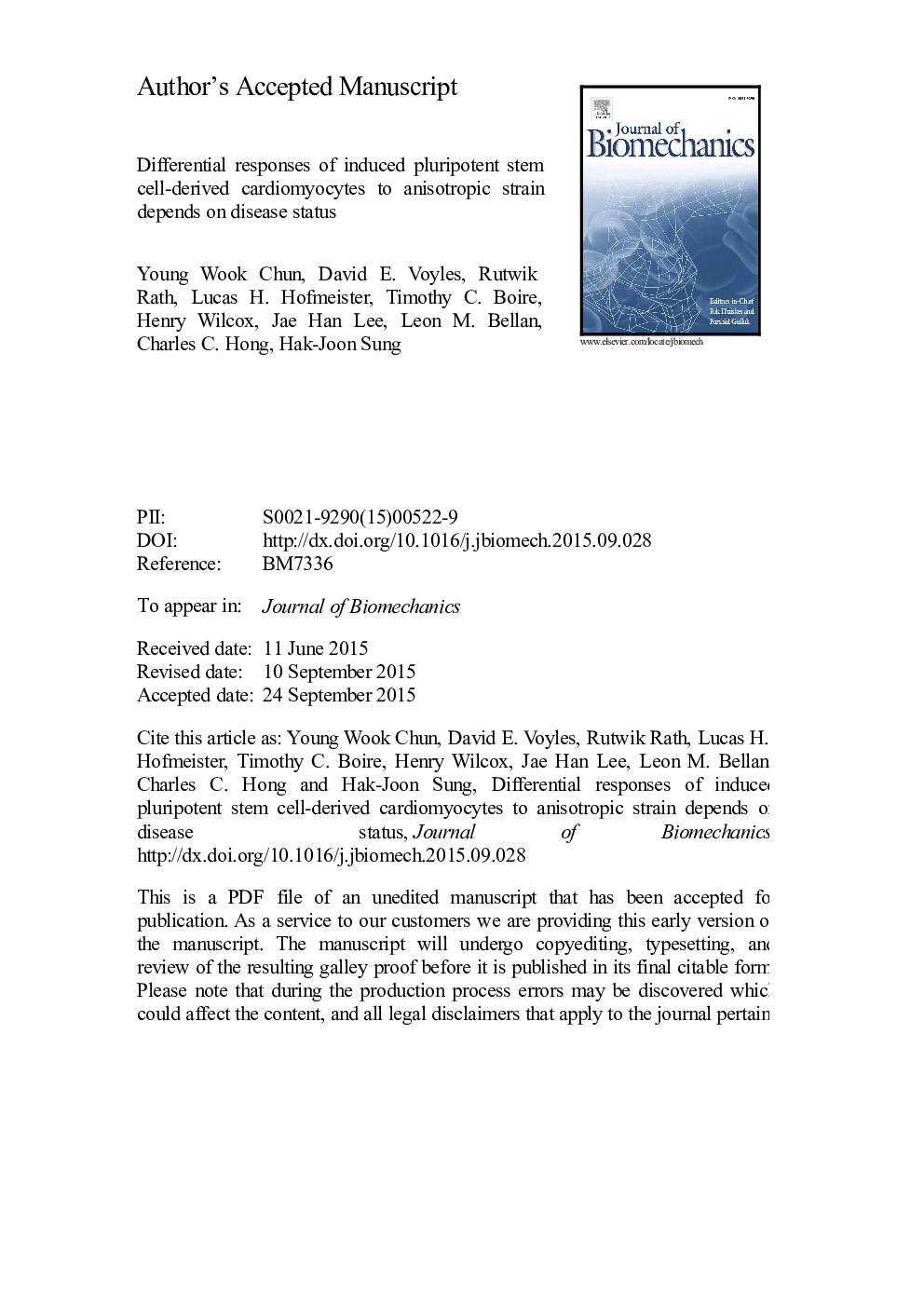| کد مقاله | کد نشریه | سال انتشار | مقاله انگلیسی | نسخه تمام متن |
|---|---|---|---|---|
| 10431525 | 910216 | 2015 | 23 صفحه PDF | دانلود رایگان |
عنوان انگلیسی مقاله ISI
Differential responses of induced pluripotent stem cell-derived cardiomyocytes to anisotropic strain depends on disease status
ترجمه فارسی عنوان
پاسخ های دیفرانسیلی از کریو یوموسیت های مشتق شده از سلول های بنیادی القا شده به سویه های آنی استروپیک بستگی به وضعیت بیماری دارد
دانلود مقاله + سفارش ترجمه
دانلود مقاله ISI انگلیسی
رایگان برای ایرانیان
کلمات کلیدی
موضوعات مرتبط
مهندسی و علوم پایه
سایر رشته های مهندسی
مهندسی پزشکی
چکیده انگلیسی
Primary dilated cardiomyopathy (DCM) is a non-ischemic heart disease with impaired pumping function of the heart. In this study, we used human induced pluripotent stem cell-derived cardiomyocytes (iPSC-CMs) from a healthy volunteer and a primary DCM patient to investigate the impact of DCM on iPSC-CMs׳ responses to different types of anisotropic strain. A bioreactor system was established that generates cardiac-mimetic forces of 150 kPa at 5% anisotropic cyclic strain and 1 Hz frequency. After confirming cardiac induction of the iPSCs, it was determined that fibronectin was favorable to other extracellular matrix protein coatings (gelatin, laminin, vitronectin) in terms of viable cell area and density, and was therefore selected as the coating for further study. When iPSC-CMs were exposed to three strain conditions (no strain, 5% static strain, and 5% cyclic strain), the static strain elicited significant induction of sarcomere components in comparison to other strain conditions. However, this induction occurred only in iPSC-CMs from a healthy volunteer (“control iPSC-CMs”), not in iPSC-CMs from the DCM patient (“DCM iPSC-CMs”). The donor type also significantly influenced gene expressions of cell-cell and cell-matrix interaction markers in response to the strain conditions. Gene expression of connexin-43 (cell-cell interaction) had a higher fold change in healthy versus diseased iPSC-CMs under static and cyclic strain, as opposed to integrins α-5 and α-10 (cell-matrix interaction). In summary, our iPSC-CM-based study to model the effects of different strain conditions suggests that intrinsic, genetic-based differences in the cardiomyocyte responses to strain may influence disease manifestation in vivo.
ناشر
Database: Elsevier - ScienceDirect (ساینس دایرکت)
Journal: Journal of Biomechanics - Volume 48, Issue 14, 5 November 2015, Pages 3890-3896
Journal: Journal of Biomechanics - Volume 48, Issue 14, 5 November 2015, Pages 3890-3896
نویسندگان
Young Wook Chun, David E. Voyles, Rutwik Rath, Lucas H. Hofmeister, Timothy C. Boire, Henry Wilcox, Jae Han Lee, Leon M. Bellan, Charles C. Hong, Hak-Joon Sung,
